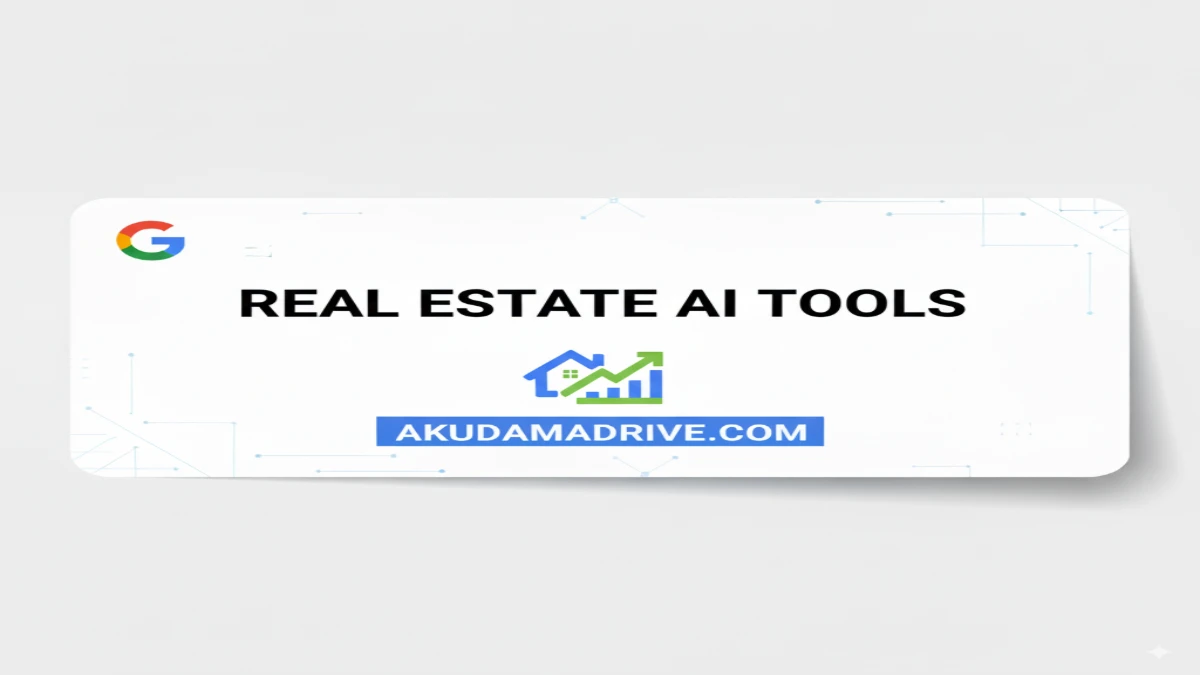🕒 Last updated on: September 8, 2025
Real Estate AI Tools: Transforming the Property Industry
How artificial intelligence is revolutionizing property management and transactions
The Rise of AI in Real Estate
Real Estate AI Tools are rapidly transforming the property industry, introducing innovative technologies that streamline processes, enhance decision-making, and improve customer experiences. From property valuation to predictive analytics, these advanced solutions are reshaping how professionals operate and how clients interact with the property market.
Key Applications of AI in Real Estate
AI-Powered Property Valuation
Real Estate AI Tools analyze vast amounts of data including property features, neighborhood characteristics, market trends, and economic indicators to provide accurate property valuations. These systems process thousands of data points in seconds, delivering more precise estimates than traditional methods.
- Automated Valuation Models (AVMs) from AI systems
- Image recognition to assess property conditions
- Comparative market analysis with real-time data
- Risk assessment for investment properties
Enhancing Customer Experience
AI-powered solutions revolutionize how agents interact with clients, providing personalized experiences and 24/7 support. From chatbots that answer queries to virtual tours that showcase properties remotely, these technologies make the property search process more convenient and efficient.
- AI-powered chatbots for instant customer support
- Virtual property tours and 3D modeling
- Personalized property recommendations
- Sentiment analysis to understand client needs
Predictive Analytics for Investment
Real Estate AI Tools help investors make informed decisions by forecasting market trends, identifying emerging neighborhoods, and predicting property value changes. These tools analyze historical data, economic indicators, and social media sentiment to provide actionable insights.
- Market trend forecasting with machine learning
- Identification of up-and-coming neighborhoods
- Rental yield predictions
- Risk assessment for property investments
Process Automation
AI-powered solutions automate time-consuming tasks in property transactions, from document processing to lead generation. This automation allows professionals to focus on higher-value activities while improving efficiency and reducing errors.
- Automated document analysis and extraction
- Lead scoring and qualification
- Smart contract management
- Automated scheduling and follow-ups
Top Real Estate AI Tools for Professionals
Zillow Zestimate
One of the most well-known real estate AI tools that uses neural networks to analyze millions of data points and provide accurate property estimates.
HouseCanary
Provides real estate analytics and forecasting using AI tools that leverage machine learning algorithms to predict property values and market trends.
CoreLogic
Offers property data, analytics, and workflow automation solutions that are among the most comprehensive AI tools available for real estate professionals.
Revaluate
An AI-powered platform that analyzes property data and market conditions to help agents identify potential sellers and generate leads through advanced technology.
Restb.ai
Uses computer vision and AI to analyze property images, automatically identifying and tagging features for more accurate listings – essential for modern real estate.
Elise AI
An AI assistant that automates leasing and property management tasks, representing the next generation of technology solutions for property managers.
Benefits and Challenges of AI in Real Estate
Benefits of AI Implementation
+- Increased Efficiency: Real Estate AI Tools automate repetitive tasks, allowing professionals to focus on high-value activities.
- Improved Accuracy: AI systems analyze vast amounts of data to provide more accurate valuations and predictions.
- Enhanced Customer Experience: AI-powered tools provide personalized recommendations and 24/7 support.
- Better Decision Making: Predictive analytics help investors and agents make more informed decisions.
- Cost Reduction: Automation reduces operational costs and minimizes human errors.
Challenges and Considerations
+- Data Privacy: AI systems require large amounts of data, raising privacy concerns.
- Implementation Costs: Initial investment in AI technology can be significant for smaller firms.
- Integration: Incorporating AI tools into existing workflows can be complex.
- Human Touch: Over-reliance on technology may diminish personal aspects of transactions.
- Regulatory Compliance: AI applications must comply with various laws and standards.
The Future of AI in Real Estate
As technology continues to evolve, Real Estate AI Tools will only grow in sophistication and impact. We can expect to see more advanced solutions that offer greater accuracy, efficiency, and personalization. From blockchain-based smart contracts to predictive models that forecast market changes years in advance, the future of real estate will be increasingly shaped by artificial intelligence.
Real estate professionals who embrace AI technology will be better positioned to thrive in an increasingly competitive market. By leveraging these powerful tools, they can provide superior service to clients, make more informed decisions, and streamline their operations for greater efficiency and profitability.
Additional Resources
How AI is Used in Real Estate
Internal resource exploring the various applications of artificial intelligence in the property sector.
Artificial Intelligence in Real Estate – NAR
External resource from the National Association of Realtors providing insights on AI adoption in real estate.






